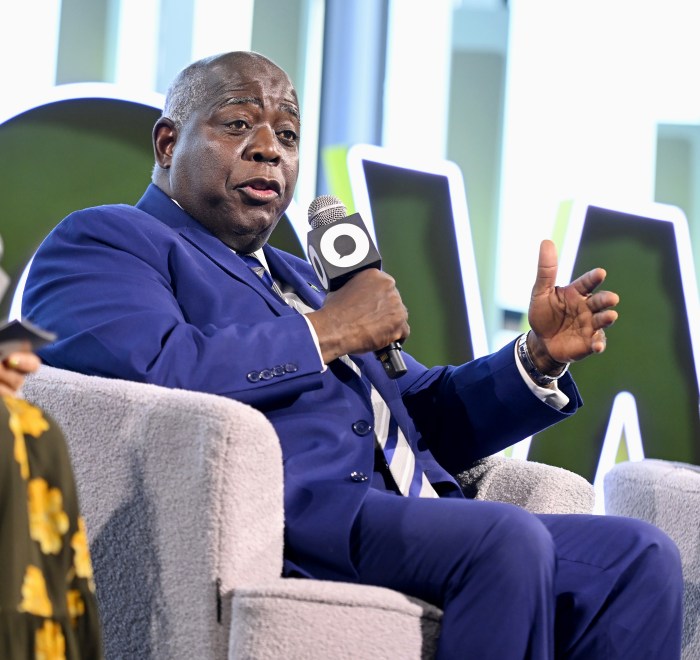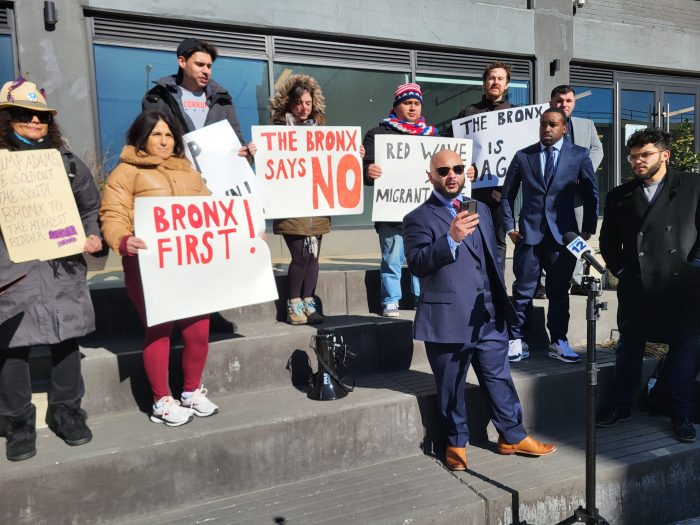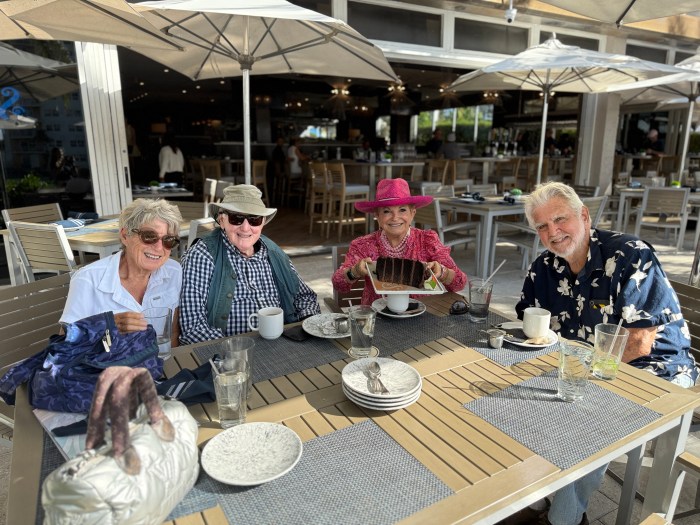Caribbean
Regional governments have been told to heighten online security measures due to increasing attacks by cyber-criminals.
According to the chief executive officer for the Caribbean Cyber Security Centre, James Bynoe, attacks by cyber-criminals will be a major problem for the region due to the increasing skill of hackers and the growing resources available to use in committing cyber-crimes.
He said the region has made it on the radar of international criminal cyber networks, with two countries being attacked recently.
“We have seen attacks within the last two weeks in Barbados, in the Cayman Islands and this is something that we should expect to continue.
“This is not an issue that can be solved by one organization or one government. We just have to get smart and pull together to ensure that Caribbean ICT resources are protected.
“There is no way to combat this and it’s a very, very pressing and clear and present danger to us,” Bynoe said.
He said islands in the region are exposed because of their size and suggested that governments pool resources to facilitate a stronger defense against cyber-attacks.
Bahamas
U.S. Federal authorities have seized more than 1,360 kilograms (3,000 pounds) of marijuana worth more than TT$19.2 million off the coast of the Bahamas.
The U.S. Coast Guard said recently that pilots in a plane had spotted a boat dropping off a portion of the drug on Eleuthera Island.
Officials said US Drug Enforcement Administration agents and Bahamas police arrested three suspects there and then pursued the boat, which eventually ran out of gas.
The Coast Guard said an additional six suspects were arrested and the remaining drugs were seized at that point.
Barbados
The Opposition Barbados Labour Party (BLP), has declared that it is ready to debate a motion of no-confidence brought against Finance Minister Chris Sinckler.
The party filed its papers with the clerk of Parliament last week – charging that Sinckler is out of his depth and his ill-conceived economic policies have resulted in untold suffering for Barbadians
Recently, the BLP rallied its troops at a mass rally under the theme “For Love of Country” where it invited Barbadians to sign a petition for the removal of the finance minister.
Party officials say more than 5000 Barbadians have already signed the petition.
Opposition Leader Mia Mottley declared that government’s handling of the economy has been dismal.
In supporting the move of the BLP, former Prime Minister Owen Arthur challenged Barbadians to take back the country insisting that the Freundel Stuart administration is unfit to govern.
But the man in the hot seat, Finance Minister Chris Sinckler, has blasted the BLP for what he says is a futile attempt to destabilize the country and bring down the government.
Sinckler maintains the no-confidence motion and the petition being spearheaded by the BLP are a waste of time and will be treated as such by the Freundel Stuart administration.
Grenada
At US 40 cents per kilowatt hour, the price of electricity in Grenada is among the highest in the world.
Like many small island developing states, electricity generation depends on the burning of fossil fuels.
This unsustainable approach to energy generation is complicated by volatile global oil pricing, and in Grenada’s specific case, a restrictive monopoly on energy generation, distribution and sale by the sole power utility—Grenada Electricity Services Limited (Grenlec).
This private monopoly was established in 1994. Based on current arrangements, this monopoly will continue until 2073.
This 79-year monopoly has, and continues to have, a significant negative impact on the island’s economic performance and long term sustainable development.
By reducing its dependence on fossil fuels through the generation of energy from natural resources, Grenada will be more resilient to external price shocks, reduce its national fuel import bill, and reduce its carbon footprint.
The goal is to purchase the controlling shares of Grenlec, currently owned and offered for sale by WRB Enterprises of Tampa, Florida, thus breaking the monopoly.
Guyana
The Amerindian community has signed a US$10 million deal with the government to help secure land titles, but concerns remain about how the boundaries are being drawn in the South American country.
Amerindian activists recently accused state surveyors of arbitrarily drawing boundaries because of rough and impassable terrain, as well as reluctance to work in malaria-infested areas without proper equipment or vehicles.
“The result is that there has been boundary overlapping in some villages, and this has in some cases set one community against the other, causing problems,” said Jean LaRose, director of the Amerindian People’s Association.
More than 75,000 Amerindians from nine recognized tribes who live in jungle and mountain communities are expected to benefit from the project. It is expected to be completed next year and is being financed with help from the United Nations and Norway.
So far, some 97 villages have obtained titles and another 33 to be demarcated, according to Finance Minister Ashni Singh.
He said the new deal will allow 13 communities to obtain titles and another 33 to be demarcated. Amerindians make up about 10 per cent of the country’s roughly 740,000 people, and the project would award them about 14 per cent of Guyana’s territory.
Haiti
A Haitian press freedom watchdog, SOS Journalistes, has condemned death threats and a plot to kill a prominent journalist working for Haiti’s most popular radio station, Caraibes FM.
The plot, to kill well-known journalist and talk-show host Jean Monard Metelus, was denounced recently by Haiti’s Justice Department, explaining that it was hatched by a sector opposed to upcoming legislative and local elections.
“We are profoundly troubled by such developments and it is outrageous to see how threatened a journalist can be just because he is exercising his right to free speech,” said Joseph Guyler C Delva, who heads SOS Journalistes.
Recently, the screws of Metelus, vehicle’s wheels were released, apparently with the intension to kill him through a provoked accident.
According to the Justice Ministry, the incriminated sector, that has not been clearly identified, would have hired two motorcyclists and paid them thousands of dollars to execute the evil plan.
SOS Journalistes has called for a thorough investigation into the issue in order to identify, prosecute and punish plotters and their accomplices.
Suriname
The Assistant Secretary General of the Organization of American States (OAS), Albert Ramdin said new levels of growth in the Caribbean will depend largely on the ability of governments to factor changes in innovation, technology, education, research and development into national development agendas.
He said so during a trip that included visits to member states T&T and Suriname.
In Trinidad and Tobago, Ramdin signed a Memorandum of Understanding with Minister of Education Dr. Tim Gopeesingh, for the country to host the Virtual Education Forum in early 2014.
The event will bring together thousands of educators and technology experts from around the world.
“This is a platform that has the potential to change the way we look at education; the way we teach, the way we learn, as well as our ability and our children’s ability to absorb information,” said the senior OAS official.
Trinidad
Former Trinidad and Tobago Prime Minister Patrick Manning said he is now finished with electoral politics.
Manning, who is the current Member of Parliament for San Fernando East said when he finishes his term of office (2015) “I am going to ride off into the sunset.”
He is currently on sick leave after suffering a debilitating stroke on Jan. 23, 2011 and has not been to Parliament since then.
Manning was prime minister when he called a snap election in May 2010, which resulted in a heavy defeat of his PNM party to the People’s Partnership (PP) party.
He served two five-year terms as prime minister and was half way through in his third term when he called an early election. He also served as opposition leader.
Compiled by Azad Ali
























